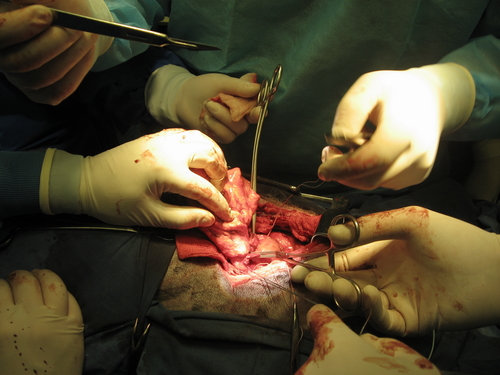The Mayo Clinic and United Therapeutics Corporation recently announced the establishment of a partnership focused on creating a new lung restoration center. The facility will be built on Mayo’s campus in Jacksonville, Florida and is expected to help improve the number of lungs available for transplant through preservation and restoration of selected marginal donor lungs. The center is scheduled to be completed by the end of 2017.
“This collaboration is exciting because it allows Mayo Clinic to bring the latest advances in life-saving technology to transplant patients,” said the CEO of Mayo Clinic’s campus in Florida, Gianrico Farrugia, MD. “Ultimately, this relationship will help Mayo Clinic expand its reach to patients who could benefit from this innovation. Increasing the number of lungs available for transplantation provides more options for patients suffering from pulmonary disease.”
Despite the fact that the financial details of the agreement were not disclosed, it is known that the Mayo Clinic will be leasing the land and the center will be built, equipped and operated by a subsidiary of United Therapeutics. The clinic will also offer physician oversight and will seek to deliver lungs to be restored at the center in collaboration with institutions focused on organ procurement.
In addition to lung restoration, scientists at the center will also conduct regenerative medicine research, a field that the two organizations believe has increasing potential in helping to heal damaged tissue and organs. “We are honored to work with Mayo Clinic to expand the supply of transplantable lungs,” stated the chairman and co-CEO of United Therapeutics, Martine Rothblatt. “Mayo Clinic was uniquely able to save my father’s mobility after a car accident fifty years ago, and I have held them in awe ever since.”
The organizations also announced that they are open to the idea of expanding the collaboration in the future and developing similar lung restoration centers in Arizona and Minnesota, where the Mayo Clinic also has campuses. The agreement may help numerous people suffering from lung diseases, since there are currently 1,600 patients in the U.S. waiting for lung transplants, according to the U.S. Department of Health and Human Services.
Every 10 minutes someone is added to the national lung transplant waiting list by the United Network for Organ Sharing (UNOS), the organization that manages the organ transplant system in the US, and approximately 18 people die daily due to the lack of transplantable lungs.
“Only about 1 percent of people who sign organ donor cards die in a way that renders their organs transplantable, and most of those precious few lungs are currently discarded due to their rapid deterioration upon death,” explained Rothblatt, who earned her Ph.D. on the medical ethics of organ transplantation. “We are confident that our ex-vivo lung perfusion technology will enable many of those otherwise discarded lungs to instead be used as gifts of life to patients on the lung transplant waiting list.”
United Therapeutics has been working since 1996 to improve treatment for pulmonary arterial hypertension, one of the lung diseases that can benefit from a lung transplant as a means of extending the life of the patient. The company has developed solutions to address the lack of transplantable organs, such as its ex-vivo lung perfusion technology, a process that treats marginal donor lungs with specialized solutions and gases to reverse lung injury and remove excess fluids in the lung.
“At Mayo Clinic, we are committed to delivering the highest quality of care to each and every patient. Our collaboration with United Therapeutics is a great example of how we are continuously looking for new ways to improve access to care, expand the science and improve patient outcomes across the United States,” added Farrugia about the collaboration between the two organizations focused on improving lung health.
The three Mayo Clinic, campuses include over 200 physicians specialized in transplant medicine and surgery who conduct about 1,800 transplants annually, with one-year patient survival rates of 93%, while the national average is 88%. In Florida, the clinic established a lung transplant program in 2001, and has since performed 469 lung transplants and eight heart-lung transplants.

